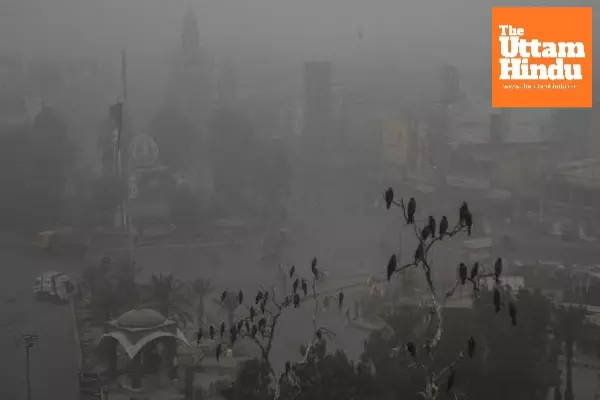
Pakistan Faces Smog Crisis as Millions Battle Respiratory Infections

Lahore (The Uttam Hindu): Nearly 20 lakh people have sought medical treatment for respiratory issues in Pakistan's Punjab province in the last one month, the local health department has revealed while releasing data from its first-of-its-kind report.
It stated that Pakistani citizens are suffering from respiratory, asthma, heart diseases and stroke due to smog as Lahore and Multan remain the world's most polluted cities.
The data showed that as many as 19,34,030 cases were reported from across the province in October, with 12,62,30 from Lahore alone.
It also revealed that over 5,000 patients suffered strokes across Punjab province in October.
The average air quality reading in Lahore remains well over 1400 in Lahore while it has crossed the 2000-mark several times in Multan.
"The highest air quality index recorded in Lahore was 2591, with readings of 2188 at Syed Maratib Ali Road, 2155 at Pakistan Engineering Services, and 1704 at Ghazi Road Interchange. The average air quality index in Lahore stands at 1460," Pakistan's Express Tribune reported on Friday.
Local media reported that the AQI in Karachi also saw a sharp decline on Friday morning.
Meanwhile, World Wide Fund (WWF) for Nature Pakistan has dispatched an "urgent letter" to Pakistan Prime Minister Shehbaz Sharif, urging him to declare a "national emergency" to address this serious crisis.
"Our children’s future is suffocating. They are asking for a right to breathe, learn and play. What will it take for us to act? WWF-Pakistan has written to the Prime Minister demanding urgent measures to curb the smog emergency," WWF Pakistan posted on X Friday afternoon.
The letter calls for an immediate halt to construction activities, the closure of polluting industries, and the removal of high-emission vehicles from the roads to help curb the current crisis.
WWF-Pakistan Director General Hammad Naqi Khansaid said the government must take immediate, bold and decisive actions to address the smog emergency as continued inaction on the issue will lead to further health complications, economic losses and environmental degradation.

